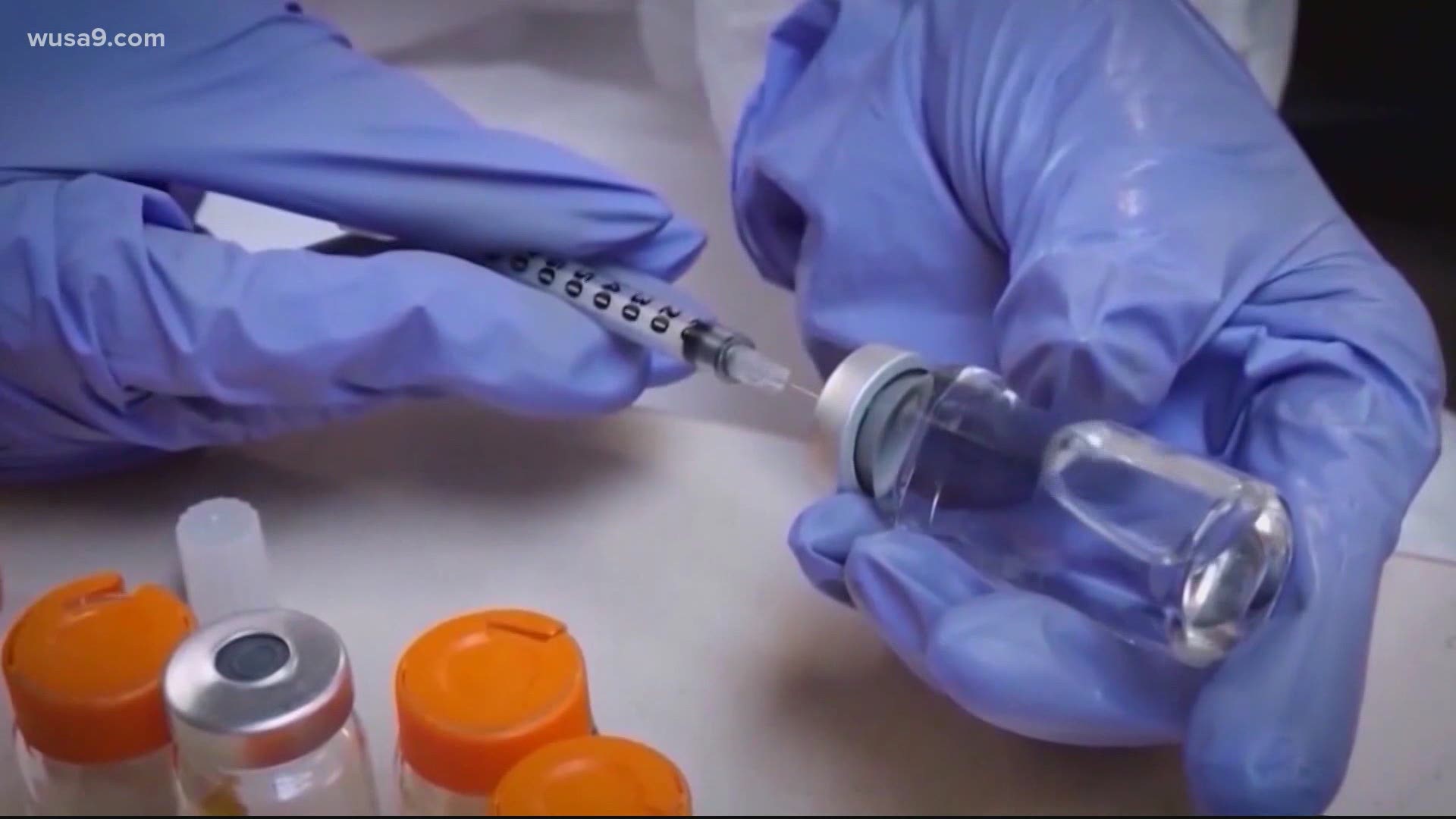WASHINGTON — The United States' top health agencies announced on April 13 that they recommend a "pause" of single-dose Johnson & Johnson/Janssen COVID-19 vaccines from being administered as they investigate "extremely rare" blood clot cases. As of April 14, there is no evidence of a causal relationship between the vaccine and these blood clots.
With new medical information can come some confusion, especially for those who have received a Johnson & Johnson shot since its FDA Emergency approval in late February.
THE QUESTION:
If you've already received the Johnson & Johnson vaccine, what should you know?
THE ANSWER:
If your shot was less than a month ago, monitor any symptoms of severe headaches, abdominal pain, leg pain or shortness of breath.
THE SOURCES:
- CDC & FDA joint statement and media briefing
THE PROCESS:
Centers for Disease Control (CDC) and Prevention and the Food and Drug Administration (FDA) said the blood clots occurred in six women about 6 to 13 days after they were vaccinated, and that all six of the cases included women between 18 and 48.
In their media briefing, CDC Principal Deputy Director Dr. Anne Schuchat said that this risk is very low for anyone who received the shot more than one month ago.
As for those with a more recent vaccination, Dr. Schuchat and other CDC and FDA officials are asking recipients to monitor symptoms of severe headaches, abdominal pain, leg pain or shortness of breath. If you experience any of these symptoms, contact a healthcare provider and seek out medical attention.
Officials say this occurrence is very rare and are currently studying any relationship that cerebral venous sinus thrombosis (CVST) may have with the vaccine. They've alerted the public out of an abundance of caution and in the interest of public education.
Have a question you want Verified? Email our team of researchers: VERIFY@WUSA9.COM

